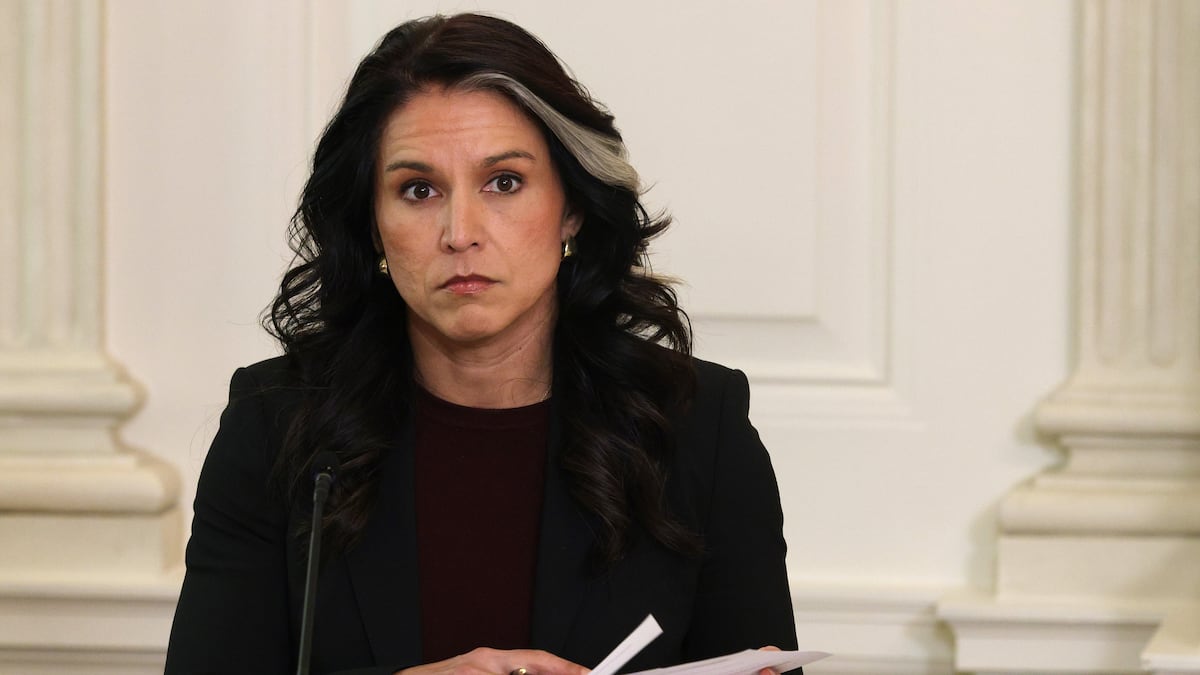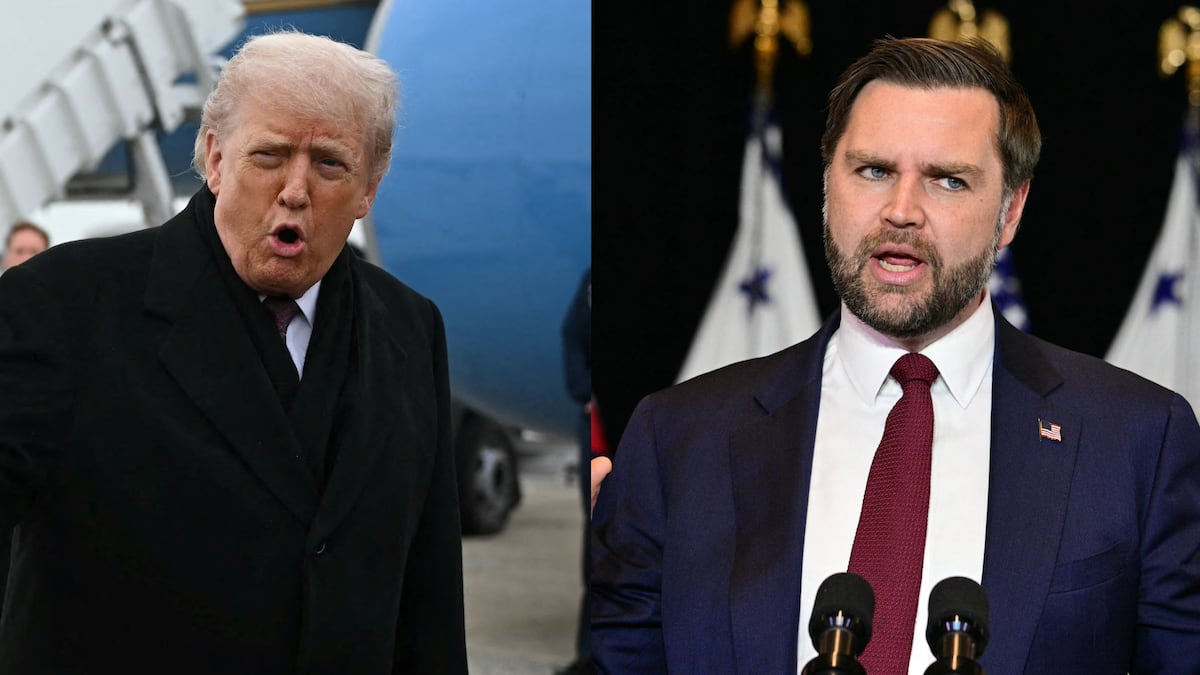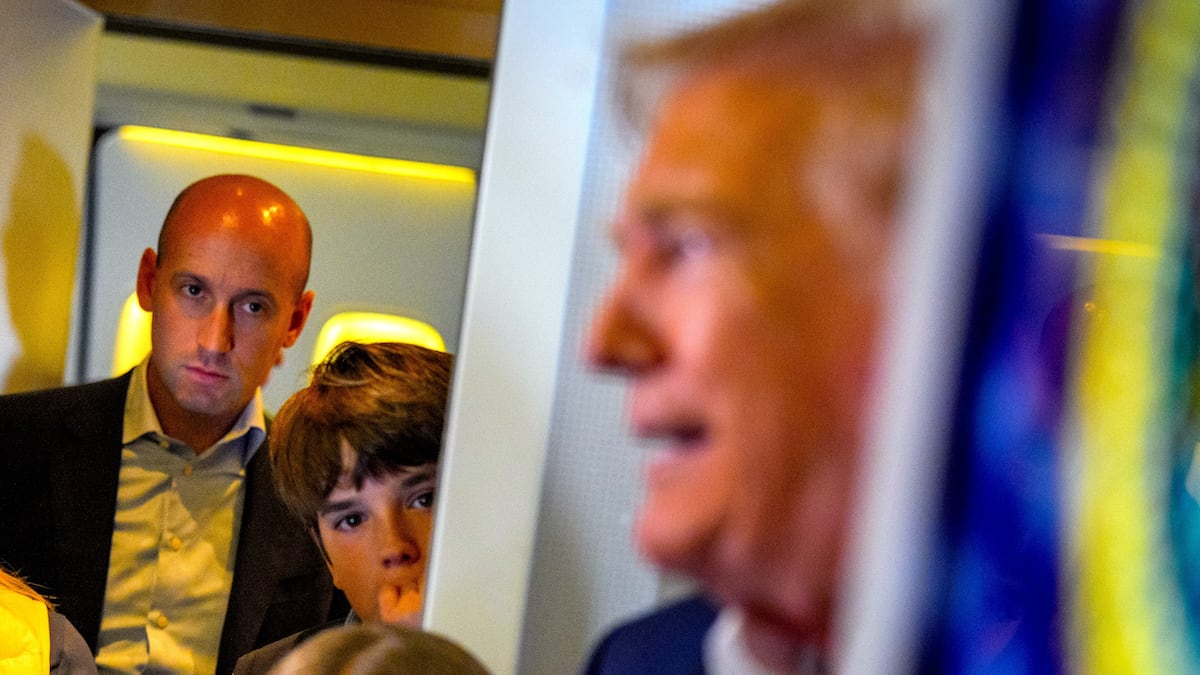The U.S military is indefinitely detaining the wife of a high-level ISIS leader, raising new questions about the Obama administration’s strategy for attacking the militant group and the legal and political challenges it could face if more fighters are taken into American custody with no plans to release them.
U.S. military officials told The Daily Beast that Umm Sayyaf, the wife of Abu Sayyaf, who was killed in a gunfight in Syria last month with American special-operations forces, could remain in U.S. custody for weeks or months more. Those officials added that they have yet to determine where she will go afterward.
She is being interrogated in Iraq—precisely where, officials wouldn’t say—in connection with her participation in the Islamic State group’s kidnapping and ransom operations. Among the possible options for Umm Sayyaf after her interrogation is complete are that she remains in American custody, is transferred to Iraqi custody, or faces charges in a U.S. court, officials said. They noted that she could also be released.
While computers and other electronic equipment captured from Abu Sayyaf “have absolutely” yielded key intelligence, U.S. military officials have yet to fully verify the information from Umm Sayyaf.
“There are words coming out of her mouth. We have yet to determine whether those words are helpful,” a defense official said.
The official also said that while the military intended to take Umm Sayyaf into custody when it launched the raid, there was no plan for what to do with her afterward. “We didn’t have a clear way when we captured her,” the official said.
Spokespeople for the National Security Council, the FBI, and the Office of the Director of National Intelligence all deferred questions about Umm Sayyaf’s custody to the Defense Department.
“Umm Sayyaf is being detained by the Defense Department in a safe location inside Iraq,” Lt. Col. Myles Caggins, the Defense Department’s spokesman for detainee policy, told The Daily Beast. “We are working to determine an ultimate disposition for the detainee that best supports the national security of the United States and of our allies and partners, consistent with domestic and international law.”
“The U.S. detention of Umm Sayyaf in Iraq is conducted in full coordination with the government of Iraq,” Caggins added.
In the near term, the Obama administration has to come up with a legal basis for holding Umm Sayyaf indefinitely. And they may have one.
The administration claims that Umm Sayyaf is an integral part of ISIS operations, and that she may have information about the group’s kidnapping and ransom operations and the deaths of American hostages.
“If she’s a member [of ISIS], she’s detainable” under the Obama administration’s rationale, Bobby Chesney, a professor at the University of Texas School of Law and an expert on detainee policy, told The Daily Beast. Obama administration officials have said that the U.S. is engaged in a lawful conflict with ISIS, authorized by the grant of force against al Qaeda and its associates that Congress passed in 2001. ISIS has been disavowed by al Qaeda, but the administration continues to see the two groups as linked, and therefore ISIS is legally covered by the 2001 authorization, officials argue.
But while the Obama administration may be on solid legal ground—or at least using a rationale that has so far not been contested—there is significant political pressure not to capture more ISIS fighters. If the U.S. does, it will have to build a new detention program that would see dozens or potentially hundreds of militants held indefinitely in American custody.
“The problems here are really more political problems than they are legal problems,” Chesney said. For now, the military can hold Umm Sayyaf in Iraq without having to build a new detention facility. But if the military starts to capture more ISIS fighters, it may have to build a new facility to house and feed them. That would put the Obama administration in the business of indefinitely detaining potentially large numbers of people, which is something that officials have excoriated the George W. Bush administration for doing.
“The Obama administration has come full circle on exactly these issues that it and others had criticized the Bush administration for,” John Bellinger, a former legal adviser to the State Department and the National Security Council during the Bush years, told The Daily Beast.
That comparison is something the White House has clearly tried to avoid. Chesney noted that in the final years of the Iraq War, the military shuttered detention facilities there and transferred combatants into Iraqi custody, where they could be processed through the justice system. He said that the U.S. policy now appears to be weighing the costs and benefits of holding Umm Sayyaf for an extended period.
“How much utility are we getting by doing the interrogation versus how much friction occurs?” Right now, there’s no real friction, he said, insofar as no human rights groups are calling for her release or for the U.S. to justify her detention. But if that happens, “suddenly, detention gets costly.”
Umm Sayyaf is an Iraqi citizen, so the administration could move her fairly easily into Iraqi custody. And she has, as yet, not been accused of any crimes against the United States or American citizens for which she could be prosecuted on U.S. soil.
That could change, however, if interrogators found evidence that Umm Sayyaf participated in the deaths of American hostages in ISIS custody. Officials have also said that Kayla Mueller, who was the only American woman ISIS held, had been given as a “bride” to Abu Sayyaf and died while in ISIS’s custody. Potentially, Umm Sayyaf could be prosecuted in connection with Mueller’s death, Bellinger said.
The legal ground for holding the ISIS widow may be shifting under the administration’s feet. Pressure is mounting in Congress for the Obama administration to form a new authorization to use military forces against ISIS, and to stop relying on the one passed in 2001.
Rep. Adam Schiff, the top Democrat on the House Intelligence Committee, introduced an amendment Thursday that would force Congress to vote on a new authorization.
“This must come to an end,” Schiff said of reliance on the old authorization during remarks on the House floor. “The amendment that I’ve offered this evening would provide that no funds shall be expended for the war against ISIS after March 31st of next year unless Congress passes an authorization. If this is worth fighting ISIS, and I believe it is, it’s worth having Congress do its job. If we’re going to ask our service members risk their lives, we ought to have the courage ourselves to take a vote on this war.”
If the administration continues to detain Umm Sayyaf and other ISIS members for a longer period, they could bring legal challenges. In that case, the administration could be forced to explain in court why the 2001 authorization applies to ISIS and also allows the U.S. to indefinitely hold its fighters, Bellinger said.
He added that the Obama administration was facing many of the same challenges now as the Bush administration did in 2001 and 2002, when it was capturing large number of people and detaining them without asking other countries to participate in that process. Not “internationalizing” detention was a mistake.
“I would hope that one thing that the Obama administration is trying to do is to make sure that Umm Sayyaf is not just the responsibility of the United States,” Bellinger continued. “On the other hand, I’m not sure there’s a long line of volunteers [to take her]. So it’s a conundrum.”







